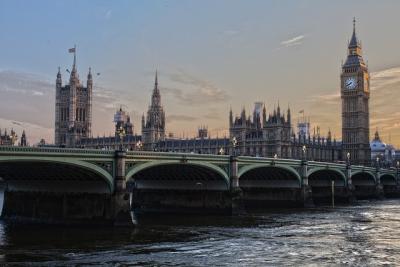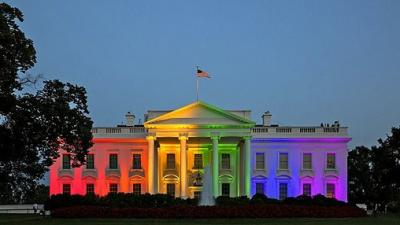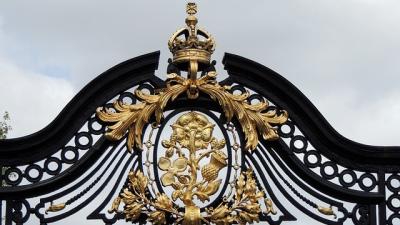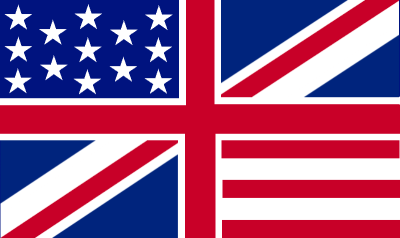‘Anglospherical’
John O’Sullivan gifted the world the much needed term ‘The Anglosphere’ to refer to the contemporary relations between, and shared culture of, those that Churchill called the ‘English-speaking peoples’. This monthly report, affectionately named ‘Anglospherical’, will attempt to highlight noteworthy political and cultural happenings in that linguistic-cultural world, from my situation on the metaphorical hill in the would-be home of English-speaking-ness itself, Oxford – think only of the (justifiable, methinks) pretentions to greatestness of the Oxford English Dictionary.
Try before you buy
The British Conservative party seems to be running a trial programme for Prime Ministers before settling down with just one. The count stands at five PMs in almost as many years. The previous occupier of 10 Downing Street, Mrs Liz Truss, was famously tried on for size only as long as a head of cabbage was to stay fresh. Apparently, there was a 30-day money back guarantee on her. The sell-by date of the most recent conservative experiment in government, Mr Rishi Sunak, is likely to be a bit further afield.
But how long will he last? I’m guessing, about as long as one of Tesco’s doughnuts (n.b., not one of ‘Tesco’s Finest’ doughnuts, just the standard, industrial white one with pink frosting and sprinkles that comes in packs of six in smelly, ocean mammal-destroying plastic). In order to test this theory, one such doughnut has been suspended beside my kitchen sink since the day of Sunak’s installation. So far after 100 days the pastry - known locally as ‘Mr Sunak’s Ring of Power’ – is looking fresher than the PM. Neither remains palatable.
Migration and Human Trafficking
The UK is experiencing a crisis of desperate persons fleeing oppressive regimes, lately France, to Britain over open seas. People smugglers are making fortunes by putting migrants’ lives at risk. During 2022, every civilized solution imaginable was put forward to stem this tide. Recently, infamously, the Government hoped to pay Rwanda to house migrants seeking entry to Britain while their cases were being determined. This has not been received well by the politically engaged public, who seem to think Rwanda unsuitable for (understandable) reasons that they (understandably) don’t like to articulate in polite company. Yet, a counter proposal that would not encourage further human trafficking is not on offer.
Ultimately, this tragedy must be laid at the door of the political union that Britain chose – whether wisely or unwisely, time will tell – to leave. For the past ten years, the EU has neither been willing nor able to form a unified bloc against human trafficking, whether conducted by way of the EU’s external borders, travelling through its internal ‘borderless’ zone, or piggybacking European lands to get to Britain or another third country.
In response to EU incompetence on regulating migration, each state of the EU routinely absorbs what it can, but eventually decides to externalize its costs by sending migrants to the next border, where there are traffickers happy to receive large sums of money for unsure transportation.
Now, Britain, a land experiencing difficulties in the provision of basic medical, educational, and transportation services (as I’ll discuss below), as well as a decades-long housing shortage, is left to ask: How many more can we reasonably take?
The UK has long been a place of resource and settlement for millions of EU citizens (at least 5.5 million EU Settlement Scheme requests were submitted as of 29 June 2021[1]); as well as for millions from the rest of the world, both regular migrants and irregular. Conservative estimates in 2020 put the percentage of UK residents who are non-British born or non-British nationals at 14%.
That estimate was made without knowledge that the number of non-British EU citizens was not 3.5 million but at least 5.5 million. The updated number, all other things being equal, would make the total percentage of UK residents who are non-British born at least 17% as of June 2021.[2]
With that in mind, more recent conservative estimates are that one in five residents of Britain are non-British born. But the distribution of these persons is geographically uneven, with many more settled in England than in either Scotland or Wales, and in England, many more living in the South than in the North.
Based on the same official data cited above, in 2020, 37% of London was estimated to be non-British born. Taken together with the correction that EU Settlement Scheme applications provided for the national totals in 2021, one might reasonably extrapolate the data to conclude that London will soon be a city where every second person is non-British born, with some neighbourhoods exhibiting a much higher percentage.
Brits who are not invested in the financialisation of London, and who wish to tell themselves a compelling story about the future of the country, are at a loss for words. They are much more at a loss for an honest narrative of ‘who we are as Brits’ in the face of such descriptive diversity. It is unclear whether the first person plural would even be the right pronoun to capture the reality that is emerging.
What could the future hold under these conditions? It might not be all that bad. We just don’t know. This is a new experiment in human settlement, and a first for Europe. But, for the very novelty of the situation, just how it can be good and stable – meaning, in which specific ways – are the (alas, routinely unasked) questions without clear answers.
To do politics, a people needs a story, a home, and a sense of belonging. Otherwise, it is hard to know where even to start from, not to mention to where and to what to welcome migrants and strangers.
Because of the great numbers of recent migrants (EU, non-EU, and irregular), over a short period of time – less than half of one generation – British society is now left a bit punch drunk and uncertain what move to make next. Not wishing to become what an historian friend of mine called ‘a poor rendition of the late Ottoman Empire, with its many millets’, it is hard for them to articulate what ‘Britishness’ could ever mean amidst such plurality of origin and belonging, try as they might.
All the good will in the world does not seem to be able to get round the psychological astonishment at the celerity of change because of the astounding numbers of people who have moved into and crowded around Britain. The knock-on effects are felt everywhere. The institutions are strained and bursting at the seams. For more on the institutional implosion of Britain, see my article, delibeRatio - The United Kingdom: The DDR of Europe?.
Classified documents?
Turning Stateside, every geriatric political executive, current or former, seems to have boxes of classified documents at home, hidden in plain sight. Trump at his vacation home, Biden in his garage by the Corvette, Pence by the fire for kindling – okay, I made that last one up. The question we all have of our American friends living Stateside: Where do you keep your classified documents?
I’ve been shocked to learn just how much of the Government of the People’s information is classified. ‘When in doubt, classify’, is said to be its best practice. This creates a dilemma for anyone who would defend the Pax Americana as superior to any of the other paxes (or submissions) on offer. We hope that if (and when) America is not benevolent it is at least not ultimately wicked.
But when so much of what it and its officials say and do is formally withheld from the public record, it is hard to assess its contemporary moral character and trustworthiness. One relies then on reputation and history. Now, full candour is neither desirable nor really possible at the level of a large government. Yet, the default position of non-disclosure – namely, ‘when in doubt, classify’ – is the root of much suspicion and second-guessing. It is the stuff conspiracy theorists thrive on. For instance, I imagine that the mainstream news would not now read like an issue of the National Enquirer regarding UFOs, if the US government had not spent decades classifying any evidence that could be used to suggest alien life, whether a stray light in the night sky or a flying object that moves in unexpected ways.
Stinkin’ Rich as an Obama
The exhibition of FBI agents raiding famous villas of the Republic’s leaders reminds me of the strange death of great beasts, sometimes already anticipated when there is yet much vigour in the creature.
How to make sense of a Republic in which to become president is to become exceedingly wealthy? And, if one is already wealthy when he steps into office, it is to begin a political legacy. What happened to the land that lauded men with the civic virtue of Cincinnatus?
The Clintons and Obamas have surfed to the shore of the Gold Coast and now join the Bushes and Trumps and Kennedys at the Clubhouse. Their progeny will no doubt attempt to rule the US, just as the Kennedys still routinely attempt to. The Presidential election of 2040 could well feature an Obama-Bush ticket for the Republicans against a Trump-Kennedy ticket for the Democrats, each of those families securely into ten figures of wealth by then.
If it were not already dismissible as an unintentional farce the real sting of pseudo-republicanism playing at democracy would be felt. But, instead of interrogating it, we are all too distracted by Michele’s newest – ‘courageous’ – book and Trump’s next wife, currently living in an orphanage somewhere in south-central Europe.
Otherwise Anglospherical
New Zealand offered the world a very public Millennial moment, when in mid-January Prime Minister, Jacinda Ardern, cited ‘burn-out’ as her reason for resigning her position. She now intends to marry her long-time beau. Miss Ardern might not realize that modern wedding prep can be even more exhausting than imposing a national lock-down after, say, detecting a single covid case (August 17th 2021). When I was getting married, I was told ‘If you can survive wedding planning, you can survive a marriage’. We wish her every happy return.
Australia is still the world’s largest island-country, a position it is likely to retain over the coming month. Cardinal Pell, the cleric innocent of the crime for which he was imprisoned (even if the Church was guilty of grave sins against children), died suddenly whilst undergoing an operation. He was a strong conservative voice in a Church that would do well to have more voices as constant as his. Needless to say, he is not greatly celebrated in his homeland. Rest in Peace, Your Eminence.
Belize remains part of the Anglosphere in all its placid, tropical excellences, with no news to report at this time.
[1]www.bbc.com/news/56846637
[2]www.ons.gov.uk/peoplepopulationandcommunity/populationandmigration/internationalmigration/bulletins/ukpopulationbycountryofbirthandnationality/2020
Read also
The US: The Next Political Third World?
There is a popular historical debate about when Rome’s decadence took it so low that it was thereafter unable to recover its former secular glory. Was it when birth rates of the Senatorial class fell to the point that they could not reproduce themselves (that is, without the mass adult adoption which they practiced)? Was it the advent of the new religion, based not on the will of the powerful or the powerful’s gods, but on the ‘poor in spirit’, meek, and persecuted, who were then inheriting the Roman earth? Was it earlier, when the Republic evolved into the Empire, and gradually lost its ability to hold the provinces to a Roman pattern?
Vernon Rogers
Ban Billionaires! – Don't tax them, exile them to their yachts
Earlier this month the American president, Mr Joe Biden, proposed a minimum tax of 25% on billionaires. It is unclear whether such a proposal could ever gain traction in the land that invented the billionaire as a special class of modern man.
Vernon Rogers
The Heir to the Spares
In my previous Region Report I complained about the Yanks’ faux republicanism (see: LINK). In Blighty the problem is the reverse: false modesty, pretended irrelevance, and the snobby casualness of insisting on calling everyone by his first name, as if one could presume intimacy with anyone, anywhere, high or low, common or royal.
Vernon Rogers
Anglospherical: The Region Report on the Anglosphere
A slow-motion transfer of power would seem to be afoot in the Anglosphere, moving from a heritage ruling class of white men and women to the children of successful Indian immigrants. The US Vice President, Mrs Kamala Harris, is Indian on one side.














Comments (0)